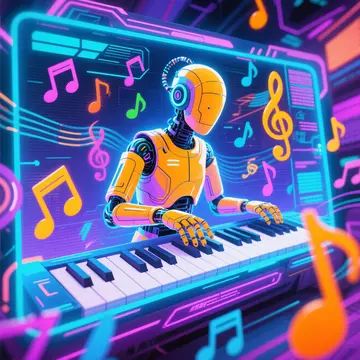Introduction: The AI Music Revolution
Artificial intelligence has burst onto the music scene, transforming how we create, produce, and consume songs. From AI-generated vocals to algorithmically composed melodies, AI music tools are sparking both excitement and concern across the industry. But is this technological revolution ultimately beneficial for musicians and music lovers?

The Benefits of AI in Music
1. Democratizing Music Creation
AI music tools like Boomy and Soundraw allow anyone to create professional-sounding tracks, breaking down barriers to entry. Aspiring musicians no longer need expensive studio time or years of training to produce quality music.
2. Enhancing Creativity
Professional artists are using AI as a creative partner:
Generating unique chord progressions
Suggesting lyrical ideas
Creating instant demos
Artists like Grimes have even encouraged fans to use AI versions of her voice for collaborations.
3. Reducing Production Costs
Independent artists can now:
Create high-quality backing tracks
Generate album artwork
Master recordings
All at a fraction of traditional costs.
The Challenges of AI Music
1. Copyright Concerns
The industry faces complex questions:
Who owns AI-generated music?
Can artists protect their style from being replicated?
Recent lawsuits highlight these unresolved issues.
2. Threat to Working Musicians
Some fear AI could replace:
Session musicians
Background vocalists
Composers for commercial work
3. Quality vs Quantity
While AI can produce music quickly, critics argue it lacks:
Emotional depth
Cultural context
Human spontaneity
The Future of AI Music
The most likely scenario is collaboration rather than replacement. As Spotify's AI DJ feature shows, listeners still crave human-curated experiences enhanced by technology.
Music platforms are developing ethical guidelines for AI use, focusing on:
? Proper attribution
? Artist compensation
? Transparency about AI involvement
Conclusion: A Balanced Approach
AI music presents both opportunities and challenges. When used responsibly, it can expand creative possibilities without diminishing human artistry. The healthiest future for the industry may lie in finding the right balance between technological innovation and artistic integrity.

